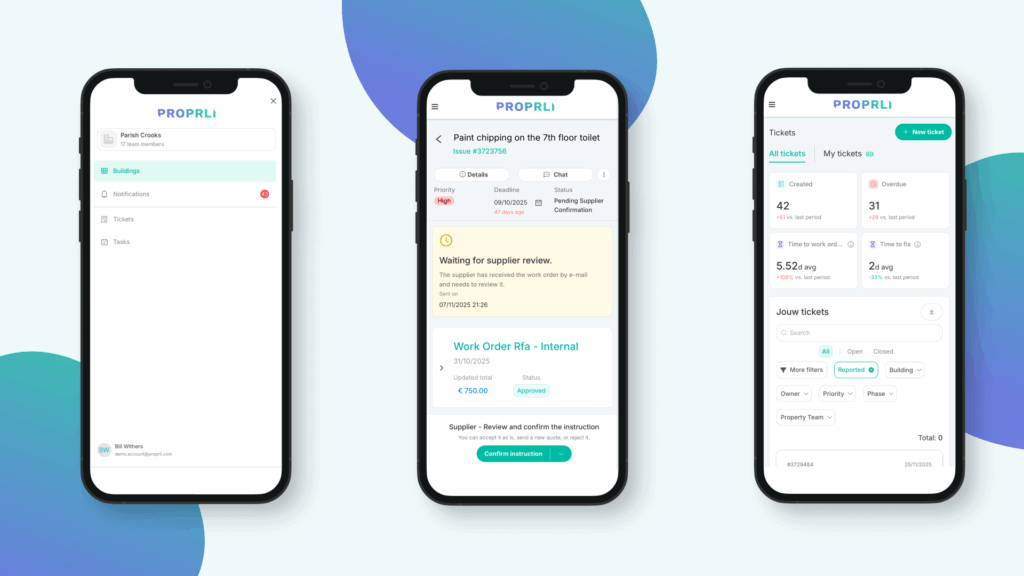In the bustling sphere of commercial real estate, making processes more efficient is key. It leads to greater efficiency and fosters growth. Standardizing operations ensures uniformity across various properties, allowing businesses to replicate success effortlessly. By embracing best practices in property management, companies enhance their operational efficiency. This ensures every property reaches its highest potential.
Standardized methods cut down on mistakes, lower operational expenses, and get teams on the same page. This uniform approach is invaluable for large portfolios. It enables clearer communication, smarter decisions, and the application of streamlined operations. With proper standards in place, property managers can swiftly respond to changes. This boosts both tenant happiness and the financial bottom line.
Key Takeaways
- Standardization property operations drive efficiency and growth.
- Consistency across portfolios enhances communication and decision-making.
- Implementing property management best practices reduces errors and costs.
- Aligning teams through standard protocols boosts operational effectiveness.
- Clear, repeatable procedures improve tenant satisfaction and financial results.
Challenges that come with inconsistent processes
Inconsistent processes in property management lead to numerous challenges. These obstacles compromise the efficiency and effectiveness of operations. With no standardized procedures, ensuring uniform property maintenance standards becomes a challenge across locations.
Varying service quality is a significant issue. Such inconsistencies might affect tenant satisfaction and retention. Additionally, maintenance tasks may face delays or get overlooked, leading to bigger problems later.
The lack of standardization also leads to unpredictable financial costs. This variability complicates budgeting for repairs, maintenance, and other property activities. Adopting standardized processes can alleviate these financial uncertainties.
Furthermore, without cohesive procedures, optimizing property processes is difficult. Consistent procedures are essential for collecting reliable data, analyzing performance, and making improvements. Uniform property protocols are crucial for boosting operational efficiency and maintaining high management standards.
How leading CRE teams achieve alignment across portfolios
Commercial real estate (CRE) teams focus on aligning their diverse portfolios to boost performance. They adhere to construction and operational benchmarks for consistency. This includes standardization property operations, which minimizes discrepancies that negatively affect asset performance.
Top players in the sector employ specific methods to increase property operation efficiency. They implement uniform systems and guidelines across properties. This not only streamlines operations but also integrates strategies across management for better outcomes.
A metrics-driven approach further enhances alignment. Teams systematically measure property performance metrics to identify and fix inefficiencies. This careful monitoring leads to maintained asset value and more effective resource use.
Consider this table showing the benefits of standardization:
| Standardization Practice | Improvement Metric | Example Result |
|---|---|---|
| Uniform maintenance schedules | Decrease in Downtime | 15% reduction |
| Consistent financial reporting | Accuracy in Forecasting | 20% improvement |
| Centralized tenant communications | Response Time | 30% faster |
The data highlights the critical role of standardization property operations and its clear advantages. These include downtime reduction and more accurate forecasting. For CRE teams, alignment means developing a coherent strategy. This strategy boosts performance and efficiency significantly.
Tools and systems that enable repeatable success
Implementing the right tools and systems is vital for achieving efficient property operations. This ensures success can be repeated. Leveraging technology simplifies property management practices. It makes optimizing property processes more straightforward.
Property management teams can boost productivity by using advanced software and integrated platforms. Let’s examine the industry’s most effective tools and systems:
- Property Management software: Platforms like Proprli offer comprehensive solutions for managing building compliance, maintenance, ticketing, procurement, budgets, contracts and central communication, allowing for efficient property operations.
- Building automation systems: These systems automate building controls such as HVAC, lighting, and security, resulting in energy savings and improved tenant comfort.
- Communication tools: Digital platforms like Slack and Microsoft Teams facilitate real-time communication and collaboration amongst property management teams, streamlining project management.
- Data analytics: Tools like Tableau and Power BI provide insights into performance metrics and trends, enabling data-driven decisions to optimize property processes.
By incorporating these tools and systems, operational efficiency improves significantly. This ensures that property management best practices are consistently applied. Achieving repeatable success in property management depends on adopting these innovative solutions. They support and enhance day-to-day operations.
What to avoid when introducing standardization at scale
When starting to streamline property management, avoiding certain pitfalls is crucial. Effective property operations balance consistency and adaptability. Beware of these common errors:
- Overly rigid protocols that leave no room for site-specific needs. Adaptation is necessary to maintain high property maintenance standards.
- Neglecting staff training and engagement. Workers need to fully understand and support the new standards for successful implementation.
- Lack of proper monitoring and feedback mechanisms. Continuous evaluation ensures processes remain relevant and effective amidst changing dynamics.
Being mindful of these challenges can lead to a smoother transition towards standardized processes. This enhances efficiency in property management operations significantly.
FAQ
Why is standardization critical for scaling property operations?
Standardization plays a vital role in scaling property operations. It guarantees uniform, efficient, and quality processes across properties. It streamlines property management practices, minimizes mistakes, and enhances property processes.
What challenges come with inconsistent processes in property management?
Inconsistent processes bring inefficiencies, increased costs, and lower service quality. They complicate enforcement of maintenance standards and successful property operations. This affects tenant satisfaction and property metrics negatively.
How do leading CRE teams achieve alignment across their portfolios?
Top Commercial Real Estate (CRE) teams ensure alignment by standardizing procedures and incorporating property management software. They also utilize performance metrics for measuring and improving outcomes. These methods aid in making property management more efficient and keeping property operations at peak levels.
What tools and systems enable repeatable success in property management?
Certain tools are key for sustained success in managing properties. Property management software, communication platforms, and data analytics systems are among them. They support streamlined property operations, enable performance tracking, and uphold maintenance standards.
What should be avoided when introducing standardization at scale in property management?
Overly rigid processes that limit flexibility should be avoided. Acknowledging each property’s unique demands and incorporating team feedback is crucial. Excessive standardization can stifle innovation and hinder addressing specific challenges efficiently.






